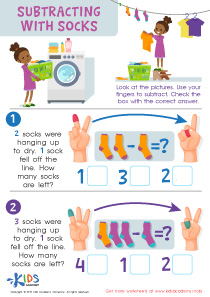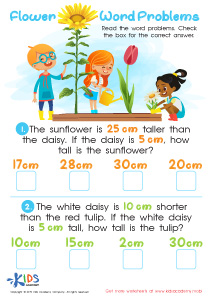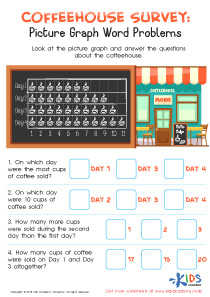Basic Math Skills Easy Addition and Subtraction Word Problems Worksheets for Ages 8-9
6 filtered results
-
From - To
Discover our engaging Basic Math Skills worksheets designed specifically for children aged 8-9! These easy addition and subtraction word problems are perfect for reinforcing essential math concepts in a fun and interactive way. Our worksheets encourage critical thinking and problem-solving as students navigate real-life scenarios through relatable word problems. With varying levels of difficulty, children can build their confidence and improve their skills progressively. Ideal for classroom use or at-home learning, these worksheets make it easy for teachers and parents to support children's math development. Help your child master math fundamentals with our colorful, easy-to-follow worksheets today!
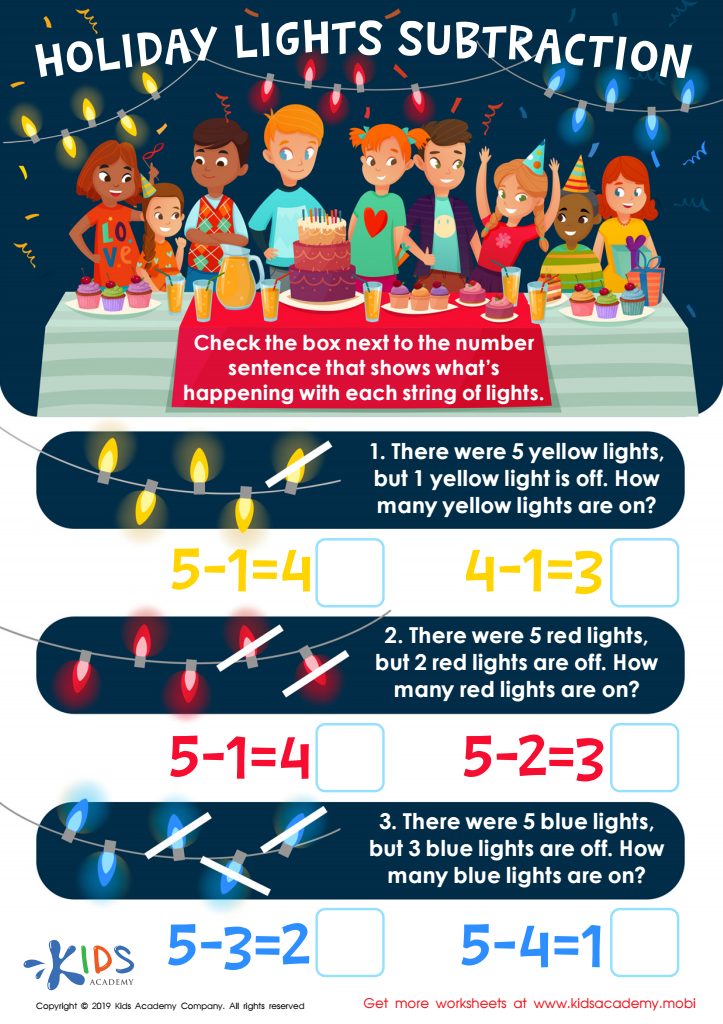

Holiday Lights Subtraction Worksheet
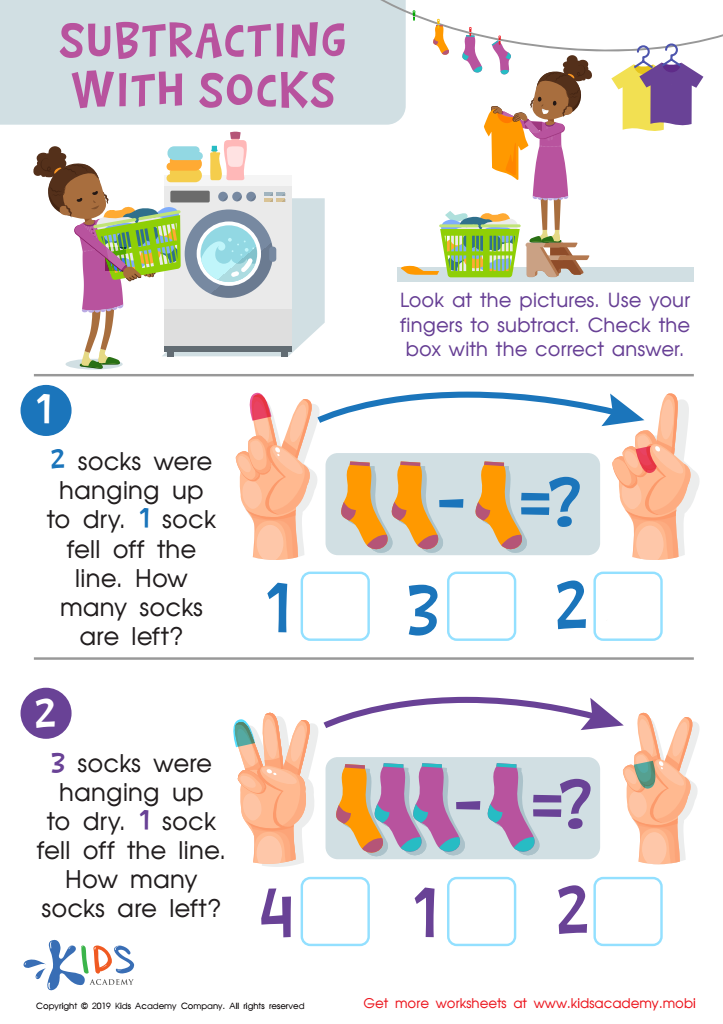

Subtracting Socks Worksheet


Counting Seedlings Worksheet
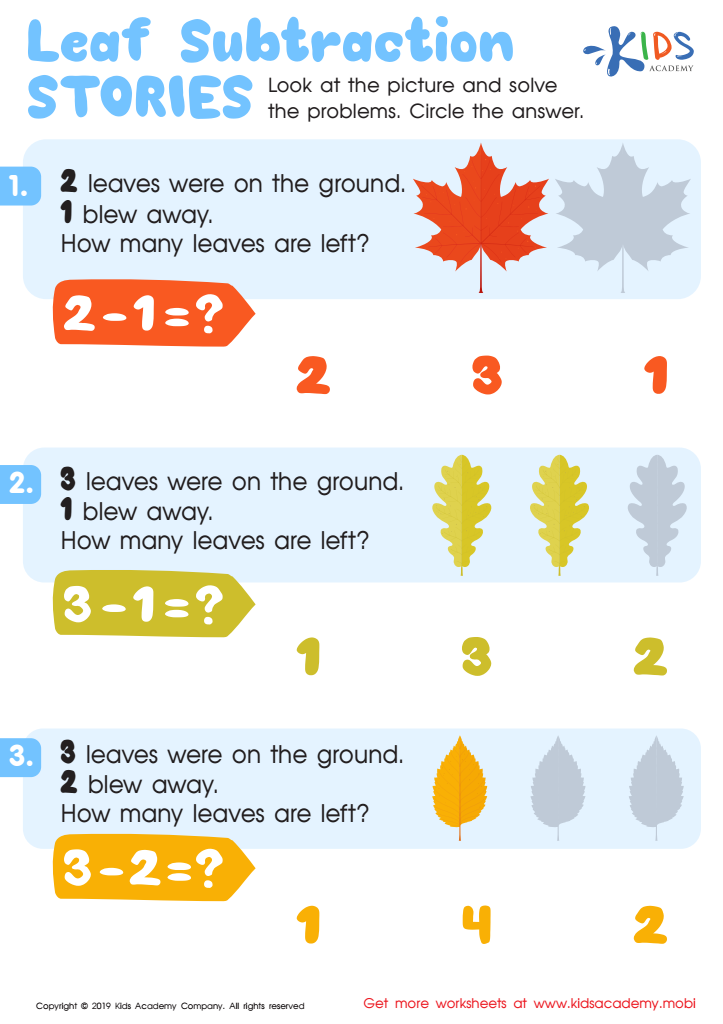

Leaf Subtraction Stories Worksheet
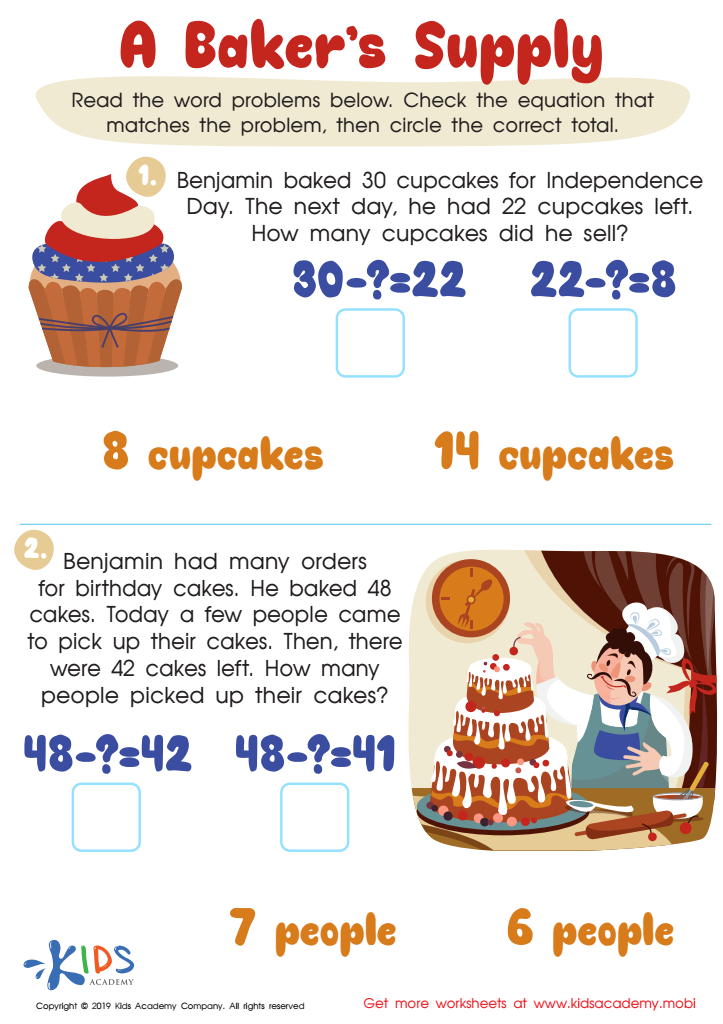

A Baker's Supply Worksheet
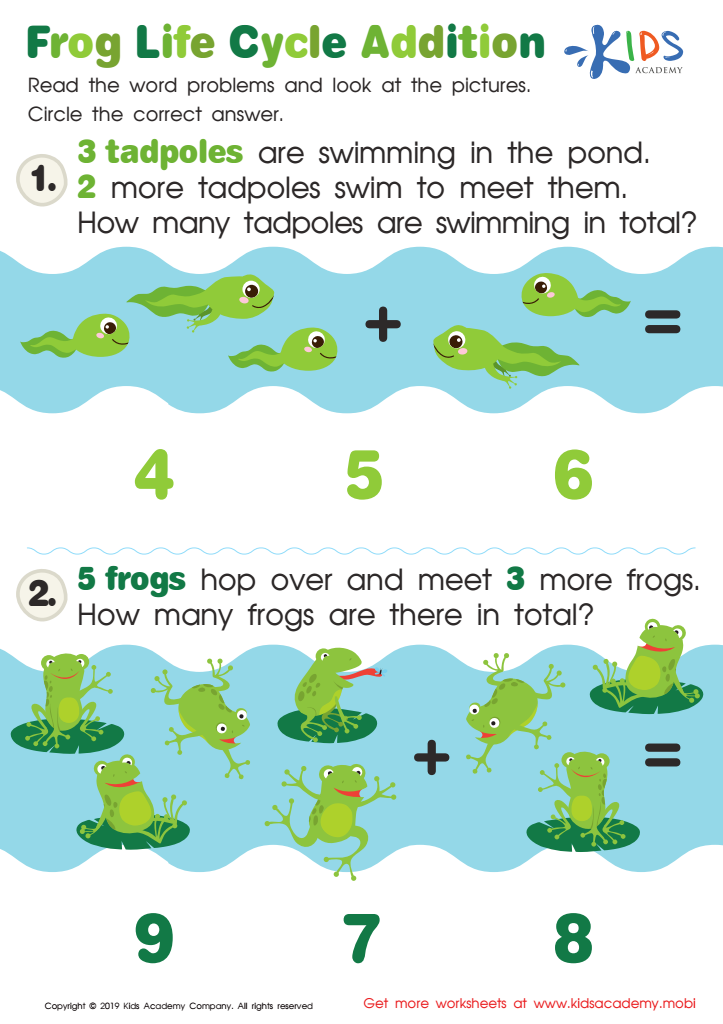

Frog Life Cycle Addition Worksheet
Parents and teachers should prioritize basic math skills, particularly easy addition and subtraction word problems, for children ages 8-9 because these skills form the foundation for future mathematical learning. At this age, children are transitioning from concrete understanding to more abstract thinking, making it an ideal time to enhance their problem-solving abilities.
Word problems encourage critical thinking and help children learn to apply mathematical concepts to real-life situations, which is vital for their overall cognitive development. Mastering addition and subtraction in contextual scenarios boosts numerical confidence, guiding children to recognize patterns and relationships among numbers.
Additionally, proficiency in these fundamental skills supports their performance in more advanced mathematics that they'll encounter in later grades, such as multiplication, division, and problem-solving involving fractions and decimals. Strong math abilities also correlate with success in other subjects, enhancing their academic confidence and motivation.
Moreover, as children develop these skills, they become better equipped to communicate mathematical ideas and reasoning, which is essential in collaborative learning environments. By supporting the enhancement of basic addition and subtraction word problem skills, parents and teachers are setting the stage for lifelong learning, strong analytical abilities, and a positive attitude toward math.
 Assign to My Students
Assign to My Students








